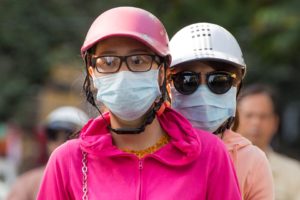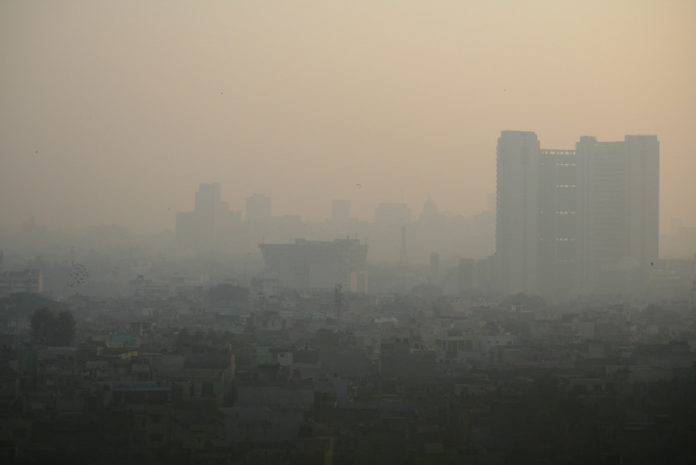With air quality in the National Capital Region (NCR) expected to go further down in the coming days, Delhi government has issued a health advisory for Delhiites.
Air quality monitoring data shows that the air quality index in many parts of Delhi has already gone to the “very poor” level. As temperature further dips and wind speed decreases, there are apprehensions that air quality may dip even further.
 Calling it a “man-made situation” Delhi government has identified the primary sources of pollution as burning of Agricultural residue in neighboring states, motor vehicles emissions, industrial pollution, construction work, bursting of firecrackers, household combustion devices, burning of wood, coal, etc. It could also be a result of burning of fire crackers, a government statement said this evening. This, despite the fact that there was a ban on sale of fire crackers in NCR at the time of Diwali last month.
Calling it a “man-made situation” Delhi government has identified the primary sources of pollution as burning of Agricultural residue in neighboring states, motor vehicles emissions, industrial pollution, construction work, bursting of firecrackers, household combustion devices, burning of wood, coal, etc. It could also be a result of burning of fire crackers, a government statement said this evening. This, despite the fact that there was a ban on sale of fire crackers in NCR at the time of Diwali last month.
Air pollution can cause a range of health problems such as allergy, eye irritation , runny nose, sore throat, cough, shortness of breath & difficulty in breathing, headache, sleepiness, lowered alertness, nausea, vomiting and abdominal pain. This is the second time in the last month or so that pollution has reached alarming levels. Last time was around the second week of November when schools were asked to stay shut for several days because of health concerns. Delhi government had then tried to introduce a car rationing scheme under which cars can get on the road only on alternate days. However the plan went bust when the National Green Tribunal ruled out allowing exemptions for women and two wheeler drivers.
Do’s and dont’s
- Do not burn dry leaves, crops residue, wood, coal, Gobar Upla etc.plant more trees to make your city green. Trees like Neem, Sheesham, Peepal, Keekar , Gulmohar etc. make the air clean and healthy , create green belt in and around the capital
- Use carpooling and public transport, as much as possible. Walk or use nonpolluting mode of transport for short distance
- Avoid going outdoor during early morning and late evening for walk or outdoor physical activity as the pollution levels are maximum during this time
- Avoid going to high pollution areas during peak hours. Stay indoor as much as possible
- Schools may avoid outdoor assembly, sports activities and other physical activities in the early morning
- Take extra precautions for high risk group as mentioned above, use N95 mask if going outdoor during the peak pollution hours
- Do not smoke, as it harms not only you but others also.
- If you feel irritation in the throat and nose, take steam and do salt water gargles. Drink plenty of warm water and maintain good hydration.
- If any time you are feeling breathless or palpitation, immediately go to nearest medical facility


